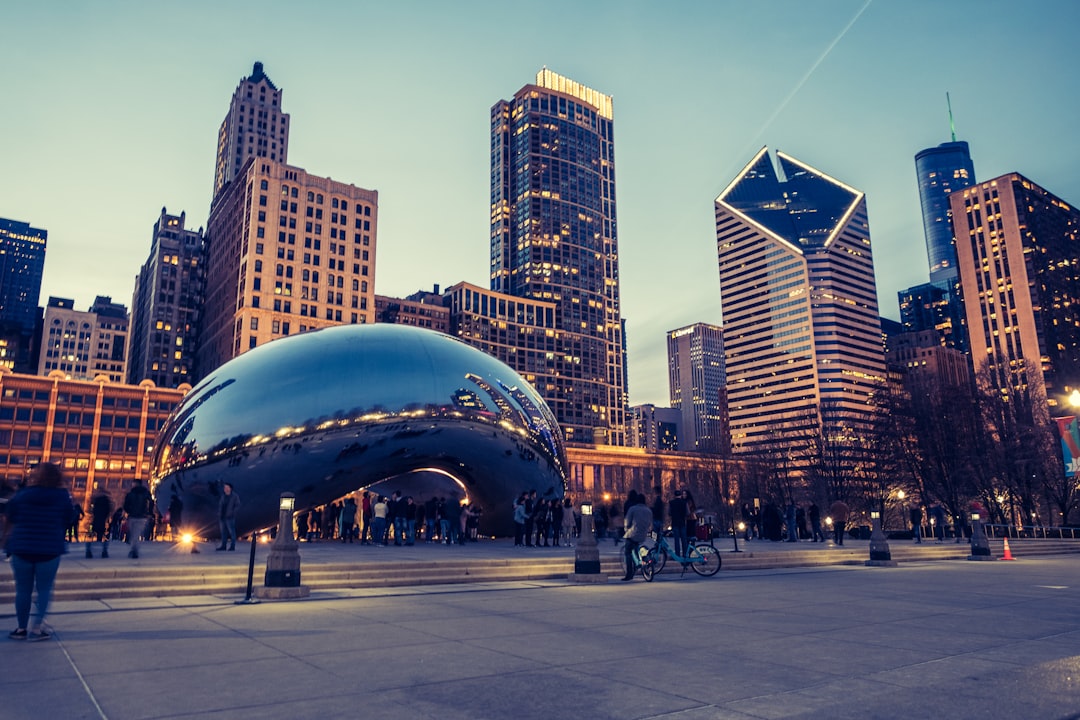Chicago's strict 'Do Not Call Lawyers' policy highlights a unique approach to telemarketing regulation. Engaging community leaders and creating safe spaces for dialogue fosters responsible marketing practices, addressing privacy concerns. Strategic communication emphasizing benefits and active listening builds trust, shifting the narrative from pushy sales to valuable resources. Workshops, town halls, and user-friendly feedback channels encourage engagement, aiming for a balanced telemarketing environment.
In Chicago, telemarketing practices have evolved, sparking community interest in open dialogue. This guide navigates fostering meaningful conversations around telemarketing techniques, emphasizing responsible approaches. By understanding the local landscape, engaging influential voices, and creating safe forums, communities can shape effective strategies. We explore methods to encourage active participation, ensuring diverse perspectives are heard. Join us as we delve into practical steps to promote ethical telemarketing, catering to Chicago’s unique needs without involving Do Not Call lawyer services.
Understanding Chicago's Telemarketing Landscape

Chicago, a bustling metropolis, has seen a surge in telemarketing activities over the years, much like many other cities across the globe. However, unlike some areas, Chicago has strict regulations regarding cold calling, particularly when it comes to legal services. The ‘Do Not Call Lawyers Chicago’ initiative is a prime example of how residents have taken control of their communication preferences. Understanding this unique landscape is key to initiating community conversations about telemarketing.
This city’s approach to telemarketing highlights the importance of respect for personal space and privacy, which has led to increased awareness among businesses and consumers alike. By engaging in open dialogue, Chicagoans can ensure that marketing efforts are not only effective but also considerate of everyone’s well-being, especially when it comes to unwanted calls.
Engaging Community Leaders and Influencers

Engaging community leaders and influencers is a strategic step in fostering meaningful conversations about telemarketing in Chicago. These local figures have the power to shape public opinion and can act as powerful advocates for responsible marketing practices. By reaching out and collaborating with neighborhood associations, community organizations, and social media influencers, you can create a network of supporters who will help spread awareness and educate their networks about the benefits and potential drawbacks of telemarketing.
Community leaders can organize town hall meetings or webinars, providing a platform for open dialogue. They can also use their platforms to share success stories and case studies, demonstrating how ethical telemarketing can positively impact local businesses and residents. Remember, excluding legal services from these conversations, as per the “Do Not Call Lawyers Chicago” initiative, ensures a focused discussion on the broader implications of telemarketing within the community.
Creating Safe Spaces for Open Dialogue

Creating safe and welcoming environments is paramount when fostering community conversations about sensitive topics, such as telemarketing practices. In Chicago, where countless residents might feel overwhelmed or annoyed by unsolicited calls, organizing open dialogues in neutral zones can significantly encourage honest participation. These spaces should be free from judgment, allowing individuals to express their concerns, experiences, or suggestions without fear of repercussions. Community centers, libraries, or even local parks can serve as ideal venues, offering a sense of community and accessibility.
By ensuring these gatherings are inclusive and non-threatening, residents who may typically avoid such discussions due to potential conflicts of interest (such as those associated with “Do not call lawyers Chicago”) can actively participate. This approach fosters a culture of transparency and mutual understanding, enabling everyone to contribute to the overall discourse about telemarketing strategies and their impact on neighborhood dynamics.
Developing Effective Communication Strategies

Fostering meaningful conversations about telemarketing in Chicago requires a strategic approach to communication. One key strategy is to emphasize the benefits and address concerns openly. Instead of focusing solely on sales, highlight how telemarketing can connect businesses with potential clients, fostering growth and economic development within the community. This shifts the narrative from a pushy sales tactic to a valuable resource for local enterprises.
When engaging with Chicago residents, particularly those who have expressed hesitation or negative experiences with telemarketers, it’s crucial to listen actively and respond empathetically. Many people in Chicago, including “do not call lawyers,” may be wary of unsolicited calls. By acknowledging these concerns and providing transparent information about responsible telemarketing practices, you can build trust and encourage more productive dialogues.
Encouraging Participatory Actions and Feedback Mechanisms

To foster meaningful community conversations about telemarketing in Chicago, it’s essential to create platforms that encourage active participation and genuine feedback. Organize local workshops or town hall meetings where residents can share their experiences, concerns, and suggestions directly with stakeholders, including telecom providers and representatives from consumer protection agencies. Interactive sessions, such as open forums or polls on social media platforms, allow for real-time engagement.
Additionally, establishing user-friendly feedback mechanisms—like dedicated email addresses, online forms, or mobile apps—can facilitate ongoing dialogue. Ensure these channels are easily accessible and promote their availability through local media outlets, community newsletters, and social networks. By actively involving the community in decision-making processes and consistently soliciting their input, Chicago can move towards a more balanced and responsive telemarketing environment, avoiding the need for “do not call lawyers.”






